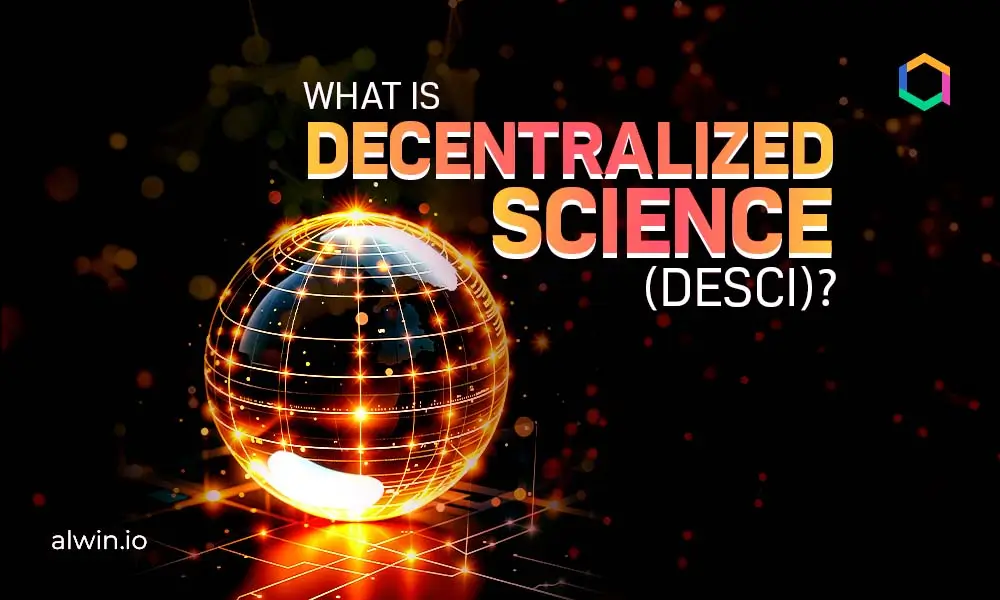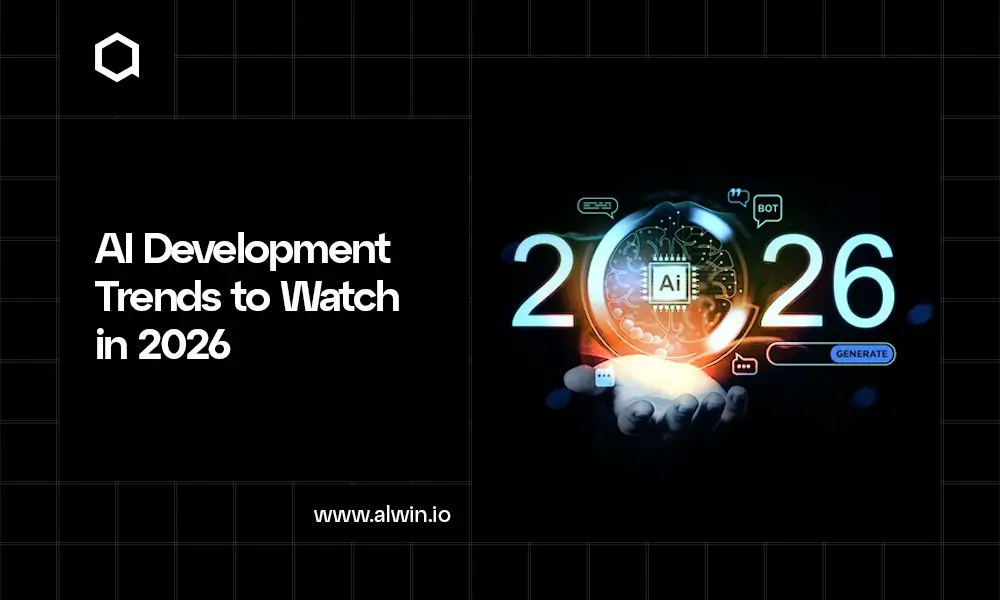In recent years, a new movement has been gaining momentum in the world of research and innovation: Decentralized Science, or DeSci. As the name suggests, DeSci represents a fundamental shift in how science is conducted, shared, and funded. It utilizes emerging technologies, particularly blockchain, to break down the traditional barriers that have often limited access to knowledge and innovation in the scientific community. Unlike the traditional scientific model, DeSci aims to decentralize the process through blockchain technology and smart contracts. It opens up opportunities for more transparent, collaborative, and efficient scientific practices.
Understanding DeSci is crucial, as it can potentially transform scientific discovery's future. By encouraging greater collaboration, increasing access to data, and reducing reliance on traditional funding models, DeSci could pave the way for faster innovations and more impactful research across various fields, from healthcare to environmental science. As modern technology continues to evolve, it’s clear that DeSci represents the future of how science will be shared, conducted, and funded in the digital age.
What Is Decentralized Science?
Decentralized Science (DeSci) uses blockchain technology and decentralized technologies to make an impact on scientific research by making it more open, and accessible. It is different from the traditional scientific model and allows the public to access research, ensures data integrity, and develops global collaboration. DeSci also introduces decentralized funding models, allowing communities to directly support research projects. By removing barriers and promoting clarity, DeSci focuses on accelerating innovation and creating a more inclusive scientific ecosystem.
The Traditional Scientific Model
The traditional scientific approach is based on centralized structures, where big businesses, governmental organizations, and university institutions frequently oversee research. Under this approach, prestigious journals oversee the publication and peer review processes, and grants are usually used to give money. Paywalls frequently prevent access to research findings, which restricts the dissemination of knowledge. Additionally, the peer review process can be slow and sometimes biased, influenced by the interests of funding bodies or established institutions. This can create obstacles to innovations, slow down scientific progress, and limit the participation of researchers from underrepresented regions or smaller institutions.
Core Technologies Enabling DeSci
Decentralized Science (DeSci) is powered by several key technologies that provide high clarity, collaboration, and accessibility in scientific research. Together, they create a dynamic decentralized ecosystem that empowers science and hasten innovation.
Blockchain: Blockchain Technology is the backbone of DeSci, providing a secure and transparent ledger for storing research data, publications, and intellectual property. It makes scientific contributions traceable and verifiable by preventing data manipulation and enabling decentralized record-keeping.
Smart Contracts: Self-executing agreements, known as smart contracts, operate on blockchain networks. They are used in DeSci to automate, without the need for middlemen, procedures like financing distribution, intellectual property management, and research agreement execution.
Decentralized Autonomous Organizations (DAOs): DAOs are blockchain-based businesses that function independently of a central authority. By allowing communities to jointly finance and oversee research initiatives, DAOs in DeSci make the process more democratic and open to a worldwide network of collaborators.
Decentralized Storage: Technologies like InterPlanetary File System (IPFS) and Filecoin allow research data to be stored across a distributed network of nodes. This ensures that scientific data is accessible, secure, and resistant to censorship or loss, enabling long-term data preservation.
Cryptocurrencies and Tokens: DeSci uses tokens and cryptocurrencies to reward contributors, encourage engagement, and provide decentralized finance. Bypassing conventional banking institutions, these digital assets enable microtransactions and donations for research initiatives.
Key Features of Decentralized Science
Elements of DeSci combine to create a more open, inclusive, and efficient scientific ecosystem, ultimately driving faster and more equitable scientific progress. Here are some of the important key features:
Open Access and Transparency: By removing paywalls and improving data quality, DeSci advocates for unfettered access to research, with blockchain ensuring that data is visible, safe, and publicly verifiable.
Decentralized Funding: Through crowdfunding and DAOs, DeSci enables communities and individuals to directly fund research, bypassing traditional funding channels and democratizing the research process.
Global Collaboration: By facilitating global communication among researchers, DeSci speeds up innovation and integrates a range of viewpoints, removing obstacles to collaboration.
Peer Review and Open Validation: DeSci encourages an open and transparent peer review process, making it easier to validate research and reduce biases, improving the overall quality of scientific work.
Smart Contracts and Automation: Smart contracts automate tasks like funding allocation, intellectual property management, and royalties, providing secure and efficient execution of agreements without intermediaries.
Decentralized IP Management: With the help of blockchain technology, researchers can transparently manage and safeguard their intellectual property, guaranteeing that their efforts are properly acknowledged and compensated.
How DeSci Works? A Technical Overview
Advanced technologies empower Decentralized Science (DeSci) that creates an impact on scientific research and also changes the way of conducting research, sharing, and validating. Here are the key components that influence DeSci from a technical perspective:
1. Decentralized Platforms and Protocols
DeSci platforms are built using decentralized protocols, often powered by blockchain technology, which ensures that scientific data, research, and transactions are transparent, secure, and firm.
Blockchain as the Foundation: DeSci platforms rely on blockchain technology to create decentralized records of research data, publications, and peer reviews. Blockchain ensures that once data is uploaded, it cannot be altered or erased, providing a reliable, permanent record.
Decentralized Autonomous Organizations (DAOs): Some DeSci projects use DAOs to govern research initiatives. A DAO is a decentralized organization where decisions are made through smart contracts and voted on by the community of stakeholders (e.g., researchers, funders, and collaborators). This removes the need for a central authority and gives participants direct control over research projects.
2. Tokenization and Incentives
A major aspect of DeSci is incentivizing participation in scientific research through tokenization. Researchers, reviewers, and funders can earn tokens as rewards for their contributions.
Cryptocurrency and Tokens: DeSci platforms often use tokens (cryptocurrencies or platform-specific tokens) as a form of reward for activities such as publishing papers, reviewing research, or funding scientific projects. These tokens can be traded, staked, or used within the ecosystem for various services.
Tokenized Funding: Traditional grant funding can be slow and bureaucratic. DeSci allows researchers to raise funds directly from the community or interested investors using tokenized fundraising.
3. Decentralized Data Storage
Traditional scientific research often relies on centralized storage solutions (like university servers or proprietary databases). In DeSci, decentralized storage systems are used to guarantee the security, and availability of scientific data.
IPFS (InterPlanetary File System): A decentralized file storage system that lets researchers store large datasets and materials across a network of nodes, ensuring security and immutability through cryptographic hashing.
Smart Contracts: These self-executing contracts automate research data management by governing token rewards or data access based on predefined criteria.
4. Decentralized Peer Review and Global Collaboration
Traditional peer review processes can be slow, opaque, and occasionally biased. DeSci transforms this process by enabling decentralized, transparent, and open systems for peer review.
Blockchain-Enabled Peer Review: Blockchain makes sure that all interactions in the peer review process, such as submissions, revisions, and comments, are securely logged and immutable. Researchers can earn tokens for providing valuable and constructive reviews.
Global Collaborative Platforms: DeSci platforms break down geographical and institutional barriers, encouraging global, cross-disciplinary collaboration.
5. Integration with Existing Systems
DeSci does not replace traditional research methods; rather, it improves them. By integrating with existing scientific tools and platforms, DeSci facilitates the research process.
Compatibility with Scientific Databases: DeSci systems are designed to integrate with established platforms like PubMed, GitHub, and ArXiv through APIs and bridging technologies. This allows researchers to upload findings to decentralized platforms while still referencing or mirroring data in traditional academic repositories.
Cross-System Interoperability: DeSci platforms are built to smoothen interaction between decentralized and traditional systems, enabling researchers to transition uninterruptedly and access resources across both environments.
Real-World Examples of DeSci Initiatives
Decentralized Science (DeSci) is an emerging field that applies blockchain and decentralized technologies to transform scientific research, funding, and dissemination. While still in its infancy, various DeSci projects are already demonstrating its potential to challenge traditional scientific practices.
Molecule Protocol
This is a decentralized marketplace for biotechnology research that enables tokenized funding and IP management for scientific projects. By connecting researchers with investors directly, it allows for more accessible funding without relying on traditional venture capital. Researchers can upload their biotech projects, and the community funds them through the purchase of tokens, which also serve as a governance mechanism to vote on project decisions. This approach aims to democratize and accelerate the drug discovery process by giving smaller projects the chance to flourish without needing institutional backing.
Athena DAO
Athena DAO is a decentralized organization focused on supporting women-led scientific research. It provides funding, mentorship, and resources to women scientists and researchers, providing greater diversity and inclusivity in science. Athena DAO utilizes blockchain to offer transparent funding mechanisms and governance, where members vote on which projects to support and allocate resources. The DAO model empowers female scientists by providing them with more autonomy over their research while promoting equitable access to opportunities in the scientific community.
ResearchHub
A decentralized network called ResearchHub pays rewards for researchers to share data, perform peer reviews, and release preprints. Built on blockchain, it promotes open science by eliminating the barriers posed by paywalled journals. Researchers earn the platform's native token, $RHB, for contributing to the open sharing of knowledge, thereby incentivizing faster and more transparent dissemination of research. This decentralized approach enables researchers to engage in peer review and publication without the constraints of traditional publishing, improving accessibility to scientific knowledge.
Valley DAO
With an emphasis on the intersection of technology, sustainability, and environmental science, Valley DAO is a decentralized autonomous organization created to develop scientific research and innovation. Valley DAO connects researchers, investors, and innovators to collaborate on projects that aim to solve pressing global challenges like climate change. It operates using blockchain to facilitate transparent funding, project governance, and resource allocation, enabling participants to vote on which initiatives receive backing.
Future Outlook for DeSci
The future of Decentralized Science (DeSci) is promising, with projections indicating it could become a cornerstone of blockchain applications by 2030, driving faster innovation and more equitable funding. As of late 2024, the sector has surpassed $1 billion in market capitalization, fueled by growing interest from venture capital and initiatives like Borderless Capital’s $100 million DeSci fund. DeSci addresses challenges in traditional research, such as limited funding and slow publication, by promoting transparency, democratizing data, and incentivizing collaboration through DAOs and tokenization. Successful projects like VitaDAO and OriginTrail are already reshaping how science is conducted. However, challenges like market volatility and regulatory uncertainty remain, requiring careful navigation as the field grows.
Conclusion
Decentralized Science (DeSci) has the potential to completely transform the scientific community by providing more effective, transparent, and inclusive research methods. DeSci is tackling major issues like inadequate funding, delayed publishing, and a lack of cooperation in conventional research methods by utilizing blockchain technology. As DAOs, tokenization, and open-access platforms gain traction, DeSci is democratizing scientific knowledge and facilitating more rapid and varied innovation. While challenges like market volatility and regulatory uncertainty persist, the future of DeSci looks bright, with the potential to reshape how science is funded, shared, and advanced globally.



